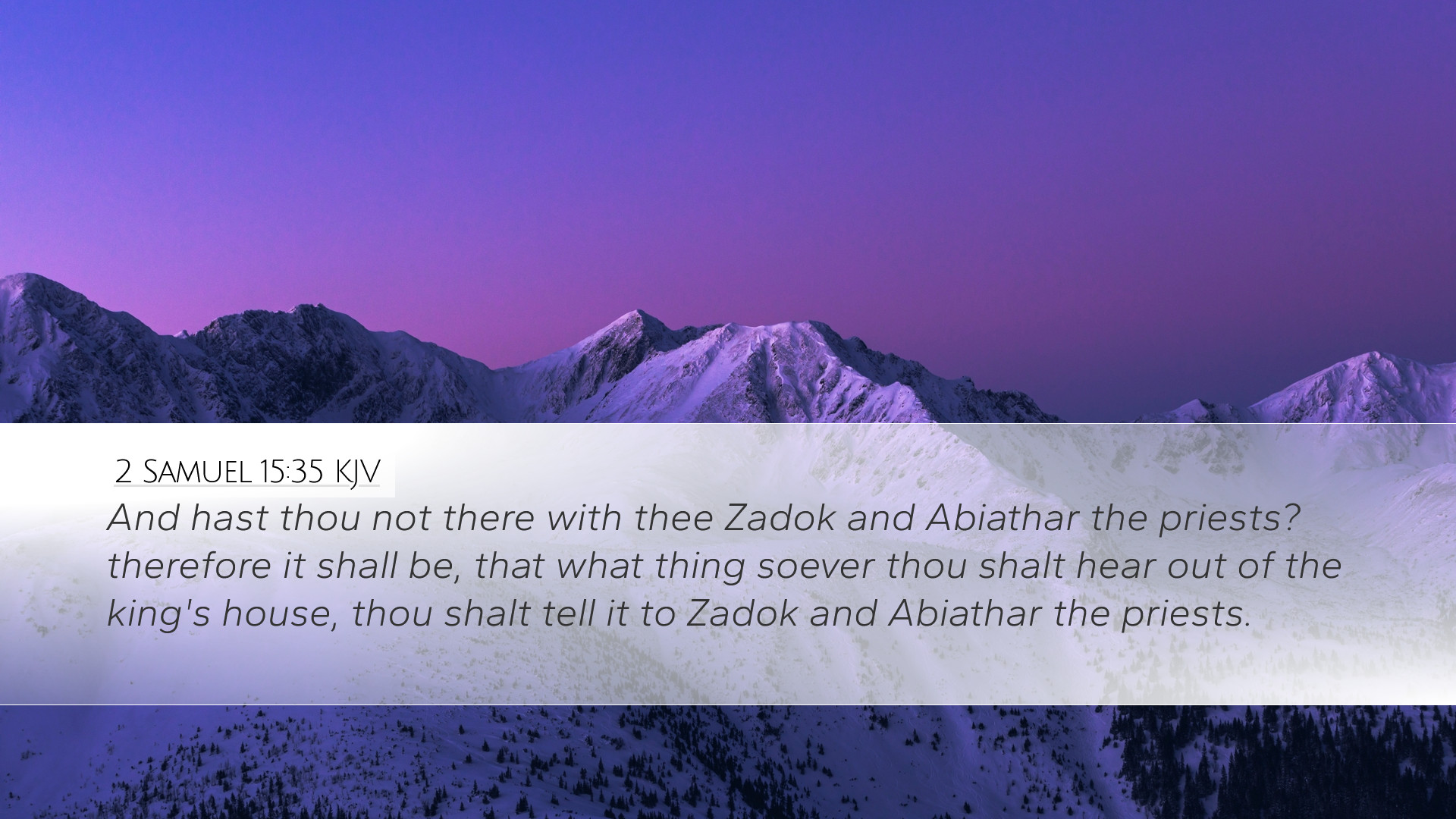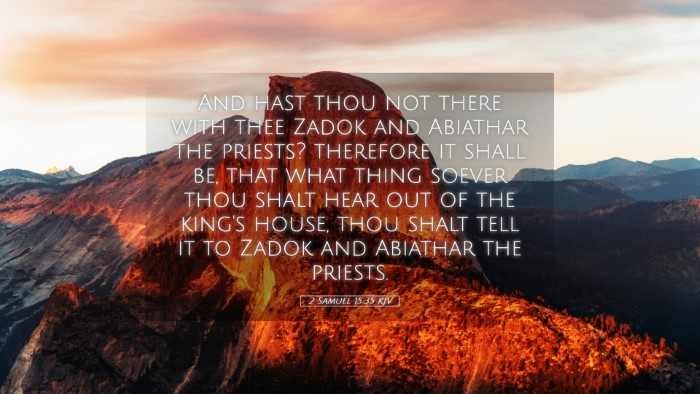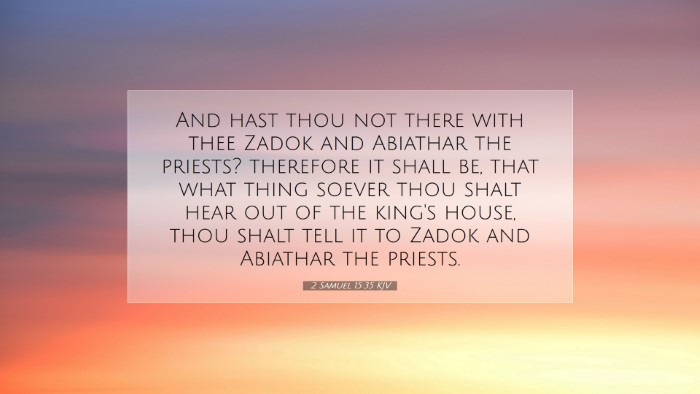Commentary on 2 Samuel 15:35
Verse Context: 2 Samuel 15:35 states, "And hast thou not there with thee Zadok and Abiathar the priests? therefore it shall be, that what thing soever thou shalt hear out of the king's house, thou shalt tell it to Zadok and Abiathar the priests."
Introduction
This passage occurs during a time of significant turmoil in David’s reign as king of Israel. Absalom has staged a coup, and David is fleeing Jerusalem. Amidst these challenges, the relationship between David and his trusted advisors becomes pivotal. This commentary aims to explore the deeper theological meanings and implications of this verse, drawing insights from notable public domain commentaries.
The Role of Zadok and Abiathar
In this verse, both Zadok and Abiathar represent the priestly function and connection to God’s will. David instructs Hushai to relay critical information about Absalom's activities through these priests. This choice emphasizes the importance of spiritual leadership during times of crisis.
- Spiritual Guidance: Matthew Henry notes that Zadok and Abiathar, by their priestly roles, symbolize a divine connection that is crucial in making sense of the chaotic political landscape.
- Mediation of Knowledge: Adam Clarke expounds that the priests are pivotal in handling the sensitive information required to navigate the civil unrest.
In this context, we see how David utilizes the priests not merely as religious leaders but as essential communicators of strategy:
the spiritual and political realms are intertwined.
Practical Implications for Leaders
Leaders, like David in this narrative, face myriad pressures. The emphasis on consultation with spiritual leaders serves as a reminder to modern-day leaders of the importance of collaboration with those who have divine insight.
- Seeking Counsel: Albert Barnes highlights that leaders should seek counsel from those who understand God’s laws and purposes, especially in times of distress.
- Importance of Community: The relationship between David, Zadok, and Abiathar typifies a supportive community that provides strength and wisdom to leaders.
This dynamic underscores that effective leadership is marked by humility and a willingness to listen to the voices of others, particularly those grounded in faith.
Theological Significance
This passage exhibits the narrative arc of divine providence in the midst of human turmoil. The presence of Zadok and Abiathar informs us that God’s oversight is present even when circumstances seem dire.
- God’s Sovereignty: Matthew Henry reflects on how, despite Absalom's rebellion, God is working through David's situation using the priests as instruments to fulfill His purposes.
- Faithfulness in Adversity: Adam Clarke elaborates on the integrity of David, who, despite being betrayed, remains committed to God’s plan by engaging with those who are spiritually aligned with him.
The underlying message is that divine guidance persists, reminding believers that God’s plans are at work behind the scenes, orchestrating events even amidst human decision-making.
Conclusion
2 Samuel 15:35 serves as a poignant reminder of the interplay between divine guidance and human agency. The roles of Zadok and Abiathar reflect the necessity for spiritual wisdom and the value of community in decision-making. For pastors, students, theologians, and Bible scholars, this passage urges believers to remain connected to their faith community, particularly during challenging times.
As we reflect on this text, let us consider how we engage with spiritual authorities in our lives, recognizing their role in informing our choices and providing clarity in moments of confusion.


